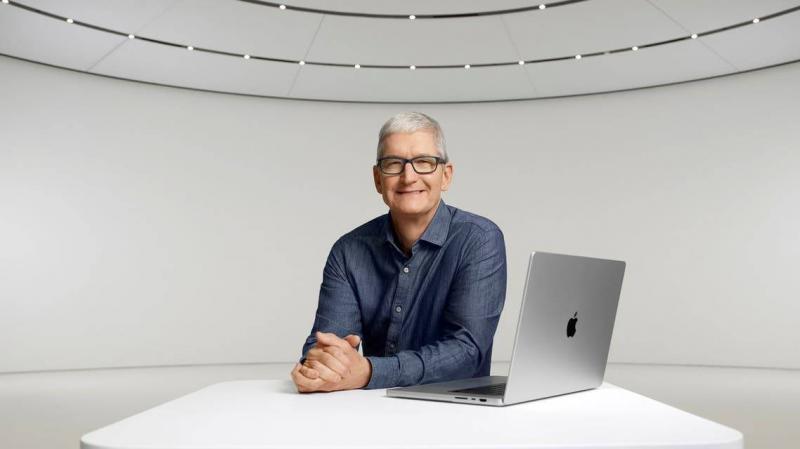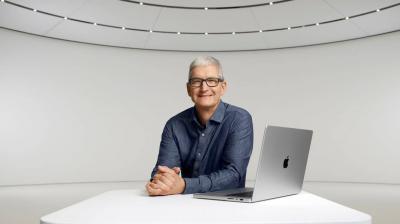Apple's CEO, Tim Cook, confirmed that he has invested his personal funds in cryptocurrencies during a discussion at the Dealbook conference. Cook stated during a conversation with Andrew Ross Sorkin, "I think it's reasonable to own it as part of a diverse portfolio. By the way, I'm not giving investment advice to anyone," without specifying which cryptocurrencies he invested in. He added, "I've been interested in it for a while. I think it's interesting," as reported by "The Arab Gate for Tech News."
While Cook confirmed his personal investment in cryptocurrencies, he was more cautious about Apple's corporate plans, excluding the possibility of investing the company's cash reserves in cryptocurrencies. He stated that Apple has no plans to allow people to use it to purchase its products in the near future. However, the CEO hinted at the idea that there are other things the company is considering regarding cryptocurrencies, without announcing any specific plans. When asked about NFTs, Cook said he finds them interesting, but it might take some time for them to become suitable for the average person.
**App Battle**
During the approximately half-hour conversation, Tim Cook was asked about other key subjects that have impacted Apple in recent months, including its legal battle with Epic Games. When asked whether users should be given the option to install apps from other sources outside the company’s App Store through processes like sideloading, the CEO confirmed that Apple believes its approach is best for security. He said, "If you want to sideload, you can buy an Android phone. That option exists when you go to the telecom store. If this is important to you, then you should buy an Android phone."
Cook went on to compare allowing users to load their own apps on the iPhone to a car manufacturer selling a car without airbags or seatbelts. He stated, "It's a huge risk to do that. It wouldn't be an iPhone if it didn't maximize security and privacy." Cook's comments came less than a week after the company’s Vice President, Craig Federighi, made similar arguments during a speech at this year's Web Summit.
The company has also released several reports this year, all arguing that allowing users to install software that hasn't been vetted through the App Store review process could expose their phones to malware and other security threats. According to the company, its policy against sideloading keeps malware on iOS low compared to platforms like Android.
Despite his strong opposition to allowing sideloading on mobile devices, the same does not apply to Mac computers, where users have greater flexibility with the software they install. Critics argue that Apple could adopt a similar approach for the iPhone and use a system like Gatekeeper in macOS to check whether an app has known malware or if its developer's certificate has been revoked. However, the company states that this approach would not be appropriate, as iPhones are used to store more personal information and that this method has led to an unacceptable level of malware on Macs.




